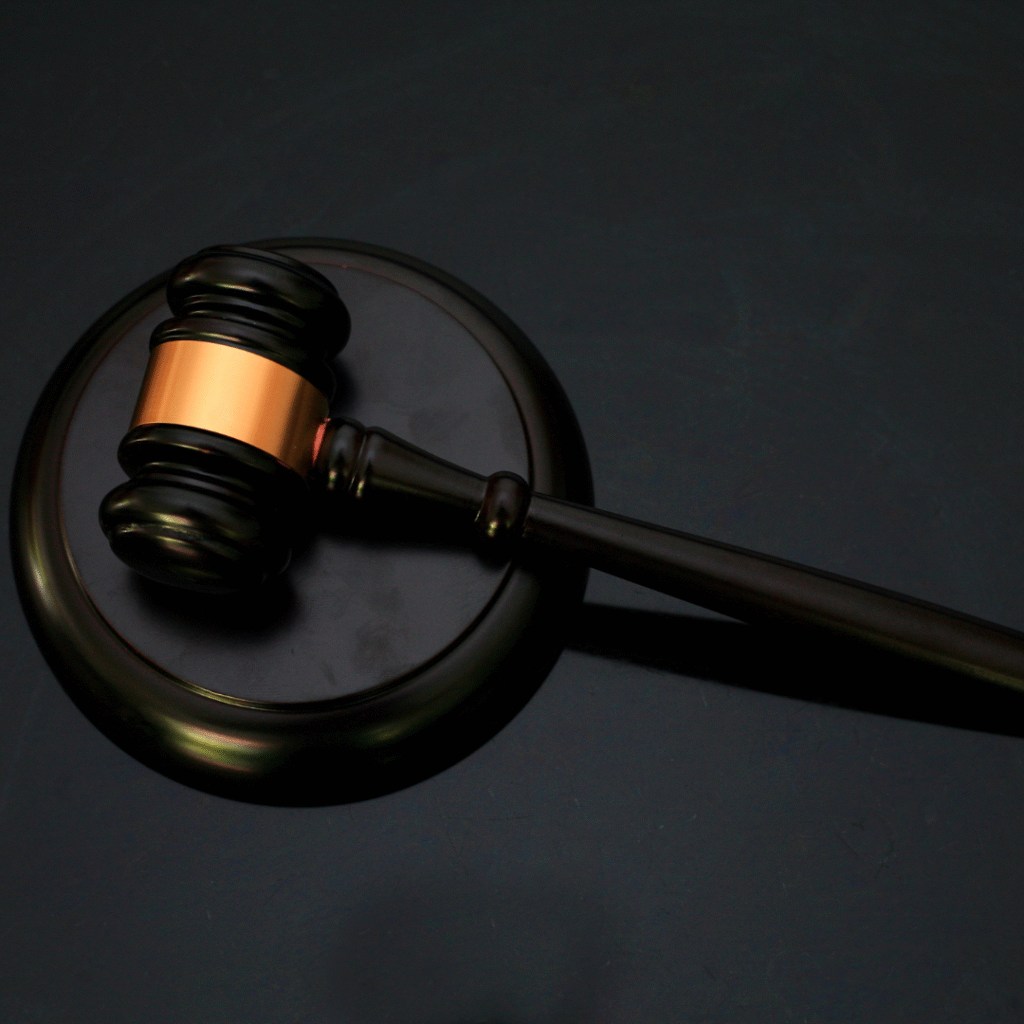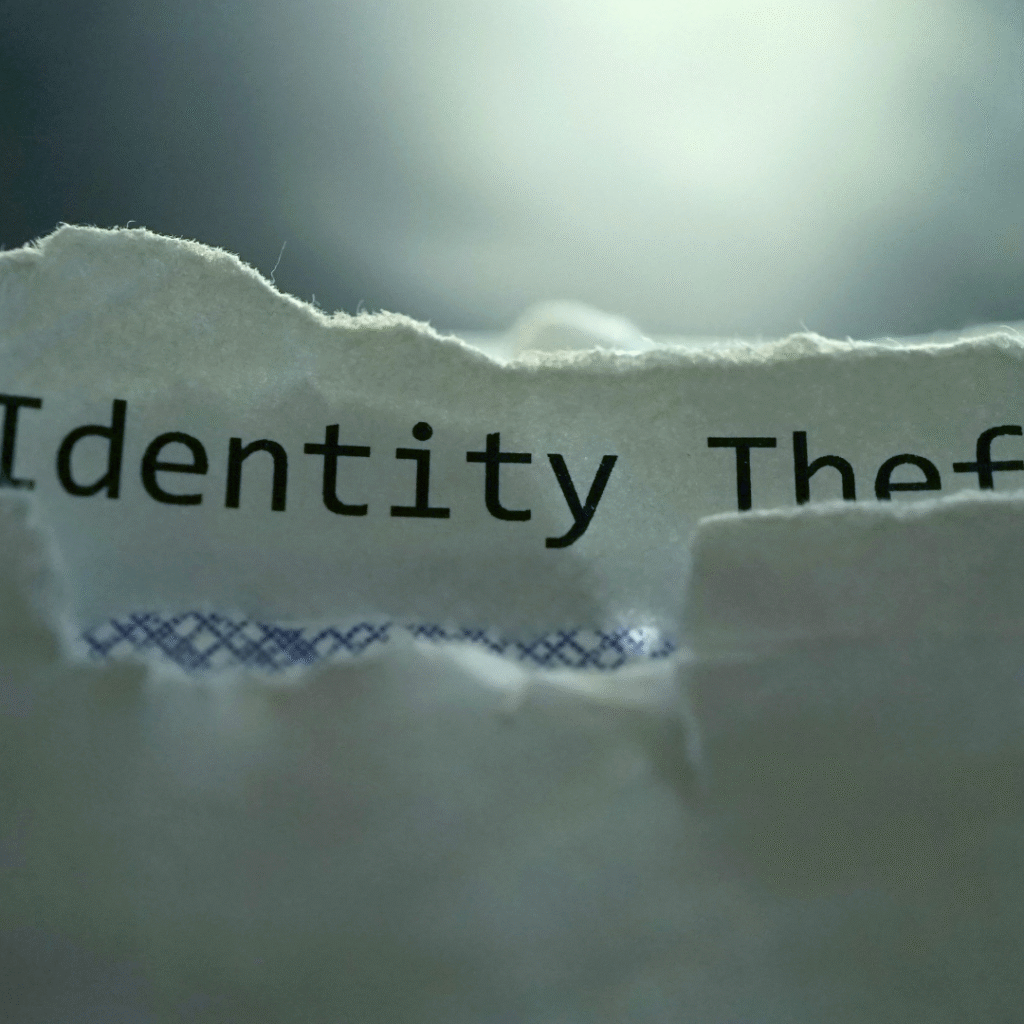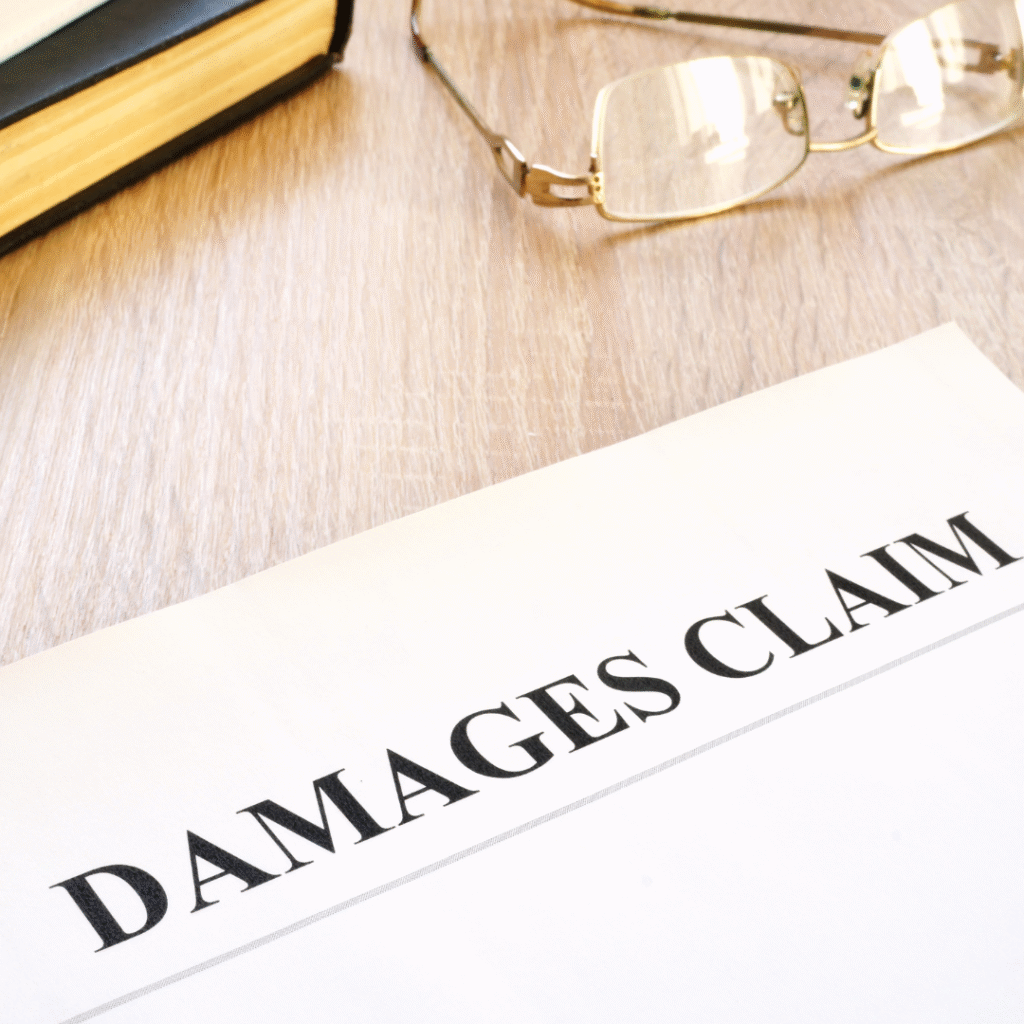Ford Asbestos Lawsuit Dismissed by Ohio Appeals Court

October 24, 2025 | JacobiJournal.com — An asbestos lawsuit against Ford Motor Co. has been dismissed by an Ohio appellate court, which found the product liability claims were improperly filed in state court. The ruling determined that the alleged exposure lacked sufficient connection to Ford’s Ohio operations, marking a significant jurisdictional win for the automaker. Court Reaffirms Jurisdictional Limits in Asbestos Litigation The panel held that the plaintiffs failed to establish sufficient ties between the alleged asbestos exposure and Ford’s Ohio operations, leading to the dismissal of the asbestos lawsuit. The court emphasized that jurisdictional rules under state and federal law prevent forum-shopping in asbestos lawsuits, especially when plaintiffs or exposure incidents occurred outside Ohio. Legal experts note that this Ford asbestos lawsuit decision reinforces the tightening standards for product liability jurisdiction in complex toxic tort cases. Ford’s Legal Victory Reflects Tightening Product Liability Landscape Ford’s defense argued that allowing the case to proceed in Ohio would violate due process standards. The appellate court agreed, reinforcing strict venue and jurisdiction criteria that often protect manufacturers from out-of-state claims. The ruling is consistent with a growing judicial trend emphasizing nexus and forum appropriateness in complex tort actions. For insurers and corporate counsel, this case serves as a reminder that forum selection challenges remain a potent defense strategy in high-liability product cases. Implications for Insurers and Product Liability Defendants The decision highlights how jurisdictional control can affect insurance exposure and settlement dynamics in asbestos-related litigation. Insurers underwriting historical exposure policies may now see reduced defense obligations when jurisdiction is successfully contested. Industry observers suggest this may influence future coverage strategies, particularly in multi-state liability scenarios. For additional legal analysis, visit Bloomberg Law’s coverage of product liability jurisdictional trends. FAQs: Ford Asbestos Lawsuit Dismissal (2025) What was the basis for the Ford asbestos lawsuit dismissal? The Ohio appeals court found the case lacked sufficient jurisdictional ties to Ohio, meaning the lawsuit should not have been filed in that venue. How does this ruling affect future asbestos litigation? It reinforces stricter venue requirements, discouraging plaintiffs from filing in states where the alleged exposure did not occur. Does the decision impact insurance carriers? Yes. Insurers may face reduced defense costs when jurisdictional challenges succeed, limiting their exposure in unrelated forums. What precedent does this set for corporate defendants? It strengthens the argument for corporations to challenge out-of-state filings, particularly in legacy asbestos and toxic tort cases. Subscribe to JacobiJournal.com for weekly updates on insurance litigation, appellate rulings, and liability enforcement. 🔎 Read More from JacobiJournal.com:
Pennsylvania Insurance Agent Faces Investment and Premium Fraud Charges

October 10, 2025 | JacobiJournal.com — Investment fraud charges have been filed against a western Pennsylvania insurance agent, Chad Skena, who allegedly defrauded a longtime client out of $75,000 by promising an investment in his own insurance agency that never materialized. Authorities stated that the funds were misappropriated for personal use, furthercompounding earlier allegations tied to premium theft. According to prosecutors, Skena persuaded the client that the investment would yield steady returns and expand the business’s operations. However, investigators later found no such business accounts or transactions related to the purported investment. Prior Allegations of Premium Theft Resurface Court documents indicate that Skena previously faced charges for diverting insurance premium payments intended for legitimate policy coverage. Victims in those earlier cases reported lapses in their insurance protection after discovering their payments were never forwarded to carriers. These renewed allegations suggest a pattern of financial deception, combining both investment fraud and insurance-related misappropriation — a serious concern for regulators monitoring agent conduct in Pennsylvania. Regulators and Prosecutors Tighten Oversight The Pennsylvania Department of Insurance and the Office of Attorney General have both intensified efforts to identify fraudulent financial practices within licensed agencies. Officials emphasized that the state’s licensing system includes disciplinary measures, from license revocation to criminal prosecution, depending on the severity of the fraud. To learn more about Pennsylvania’s agent fraud prevention programs, visit the Pennsylvania Insurance Department. How Victims Can Respond to Agent Misconduct Victims of suspected agent fraud are encouraged to report violations directly to the state insurance fraud bureau. Key actions include: These steps can help recover losses and support the state’s broader fraud prevention efforts. FAQs: Pennsylvania Insurance Agent Investment Fraud Who is the insurance agent accused of investment fraud? Chad Skena, a western Pennsylvania agent, is charged with defrauding a client of $75,000 under a false investment scheme. What previous charges does he face? Skena was previously charged with theft of insurance premium payments that left some clients without valid coverage. How does Pennsylvania regulate insurance agents? The Pennsylvania Insurance Department oversees licensing and disciplinary actions, including fraud investigations and revocations. What should consumers do if they suspect agent fraud? Report suspected misconduct directly to the Insurance Department and maintain documentation for potential recovery or prosecution support. Stay informed on breaking fraud and insurance litigation cases. Subscribe now to JacobiJournal.com for verified updates on insurance and investment fraud cases. 🔎 Read More from JacobiJournal.com:
NICB Projects 49% Rise in Insurance Fraud Linked to Identity Theft

September 22, 2025 | JacobiJournal.com — Insurance fraud identity theft has surged dramatically in 2025, with the National Insurance Crime Bureau (NICB) reporting a 49% increase nationwide. Investigators say the rise includes both traditional stolen identity schemes and the fast-growing use of synthetic identities, where criminals combine real and fake information to create fraudulent profiles. The surge in insurance fraud identity theft reflects broader challenges in today’s digital economy, where criminals increasingly exploit weak points in online systems and claim processing networks. Experts warn that as fraudsters refine their tactics, insurers are often left playing catch-up, forcing companies to invest heavily in technology and investigative resources. At the same time, consumers face growing risks of personal information being stolen and misused in ways that may not surface until months or even years later. Fraud Schemes Target Insurers Nationwide NICB officials warned that insurers are facing mounting challenges in detecting insurance fraud identity theft claims filed under stolen or fabricated identities. These scams often exploit gaps in verification systems, leading to false payouts that drive up costs for both carriers and policyholders impacted by insurance fraud identity theft schemes. Criminals engaging in insurance fraud identity theft often use sophisticated tactics such as creating layered synthetic profiles or exploiting outdated verification protocols across multiple insurers. These strategies allow them to file repeated fraudulent claims undetected, draining millions from the industry annually. Analysts caution that without stronger cross-industry cooperation and real-time data sharing, fraudsters will continue to adapt faster than traditional detection methods. Synthetic Identity Fraud on the Rise Experts note that synthetic identity fraud, a major driver of insurance fraud identity theft, has become one of the fastest-growing financial crimes in the United States. Unlike traditional theft, insurance fraud identity theft schemes are harder to detect because they use legitimate data points, such as Social Security numbers, combined with fabricated details. This makes tracking and prevention far more complex for insurers and regulators. As synthetic profiles become more sophisticated, insurance fraud identity theft cases often go undetected until significant financial damage has already occurred. Fraudsters can maintain these false identities for years, slowly building credit histories before exploiting them for large insurance payouts. This evolving threat underscores the urgent need for advanced fraud detection systems that can analyze patterns across multiple insurers and flag suspicious activity before losses escalate. Consumers Bear the Hidden Costs Industry analysts emphasize that the cost of fraud ultimately lands on consumers through higher premiums and reduced trust in the insurance system. Victims of identity theft also face long recovery times, often spending months resolving credit damage and restoring their records. Calls for Stronger Fraud Prevention NICB is urging insurers, regulators, and technology providers to collaborate on enhanced fraud detection tools and cross-industry data sharing. Federal and state lawmakers are also reviewing proposals that would tighten compliance standards around identity verification and claim processing. For more details, visit the National Insurance Crime Bureau. FAQs: Insurance Fraud Identity Theft Rise How much has insurance fraud linked to identity theft increased in 2025? The NICB reports a 49% year-over-year increase in such cases. What is synthetic identity fraud? It’s a form of fraud where criminals combine real information, such as Social Security numbers, with fake details to create new identities. Why does this matter for policyholders? Fraudulent claims drive up insurance costs and can leave consumers vulnerable to premium hikes and compromised coverage. What steps are being taken to fight identity theft in insurance? NICB and regulators are pushing for stronger verification systems, data sharing, and legislative reforms to combat rising fraud. Subscribe to JacobiJournal.com for ongoing coverage of insurance fraud, financial crime, and consumer protection cases. 🔎 Read More from JacobiJournal.com:
Pennsylvania Hospital Fraud Suits Blocked by $19M Deal, Court Rules

September 2, 2025 | JacobiJournal.com — Pennsylvania hospital fraud suits have been barred after a federal appeals court upheld a $19 million settlement that resolved long-running allegations of improper Medicare and Medicaid billing. The ruling closes one of the most closely watched healthcare fraud disputes in the state, where whistleblowers had accused the University of Pittsburgh Medical Center (UPMC) and affiliated physicians of manipulating billing practices to inflate reimbursements. At the heart of the Pennsylvania hospital fraud allegations were claims of unnecessary cancer treatments, double billing, and improper coding that prosecutors argued cost taxpayers millions. By affirming the settlement, the court not only finalized the financial recovery but also effectively shut down future lawsuits tied to the same conduct. Legal experts note that this decision sets an important precedent for how federal courts may treat overlapping whistleblower cases, narrowing the path for additional litigation once a global resolution has been reached. UPMC Accused of False Claims and Improper Billing A three-judge panel of the Third Circuit ruled that the agreement, reached between federal prosecutors and the University of Pittsburgh Medical Center (UPMC) along with certain physician groups, precludes further whistleblower claims tied to the same allegations. The court emphasized that the $19 million settlement was intended to bring closure to years of litigation surrounding improper Medicare and Medicaid billing practices. By ruling in favor of UPMC, the panel effectively confirmed that all overlapping claims related to the alleged misconduct were absorbed into the federal settlement. The panel’s decision reflects how Pennsylvania hospital fraud cases are increasingly resolved through comprehensive agreements rather than piecemeal litigation. Prosecutors argued that allowing additional whistleblower suits to proceed would create duplicative claims and undermine the finality of negotiated settlements. For UPMC, the outcome provides certainty after years of scrutiny, while for whistleblowers, it raises concerns that valid claims may be sidelined when folded into broader fraud resolutions. Whistleblowers’ Claims Swept Into Settlement The panel rejected arguments from relators who sought to continue separate lawsuits, holding that the settlement fully released the claims under the False Claims Act (FCA). “The $19 million deal covered the same alleged conduct, and duplicative litigation cannot proceed,” the opinion stated. The court reasoned that permitting additional lawsuits would not only risk conflicting judgments but also erode the purpose of negotiated fraud settlements, which are designed to bring finality and conserve judicial resources. For the whistleblowers, however, the ruling was a significant setback. Many had argued that their Pennsylvania hospital fraud claims involved distinct billing schemes or different time periods that deserved independent review. Yet the judges determined that the settlement’s broad scope encompassed all such allegations, leaving no room for separate recovery. This outcome illustrates the tension between incentivizing insiders to report fraud and the government’s preference for resolving healthcare disputes through comprehensive settlements. Tension Between Whistleblowers and Finality Federal prosecutors emphasized that the settlement was a significant recovery for taxpayers while allowing UPMC to avoid admitting liability. However, whistleblowers expressed concern that the ruling may discourage insiders from coming forward if their claims are swept into broad settlements without additional payouts. Prosecutors countered that the $19 million resolution delivered meaningful accountability for alleged misconduct while avoiding the uncertainty of protracted litigation. Critics argue that the decision highlights a recurring problem in Pennsylvania hospital fraud cases: whistleblowers often take substantial risks in exposing wrongdoing but may receive little or no recognition when their claims are folded into global settlements. Legal analysts note that this dynamic could weaken the incentive structure of the False Claims Act, which was designed to reward insiders who help uncover fraud. As a result, the case underscores the delicate balance courts must strike between achieving finality for institutions like UPMC and maintaining strong protections for whistleblowers who reveal systemic healthcare fraud. DOJ’s Focus on Healthcare Fraud The case highlights the growing tension in False Claims Act litigation between rewarding whistleblowers for exposing fraud and providing finality for institutions accused of misconduct. The ruling further signals that federal courts may take a narrow view of relators’ ability to press claims after a global settlement has been reached. This trend could directly affect how Pennsylvania hospital fraud cases are litigated in the future, with courts showing increased deference to comprehensive government settlements that cover broad categories of alleged misconduct. For context, the Department of Justice recovered more than $2.7 billion under the FCA in fiscal year 2024, with healthcare fraud accounting for the majority of cases. Officials have repeatedly stressed that enforcement against hospital systems remains a top priority, particularly where Medicare and Medicaid billing abuses are involved. The Pennsylvania hospital fraud suits against UPMC serve as a reminder that even large institutions remain under scrutiny, but final settlements may limit how far whistleblower claims can proceed once the government has secured a resolution. Read the DOJ’s latest False Claims Act statistics. FAQs: Pennsylvania Hospital Fraud Suits What were the Pennsylvania hospital fraud suits about? They involved allegations that UPMC and affiliated doctors submitted false Medicare and Medicaid claims for unnecessary cancer treatments and improper billing. Why did the appeals court block further lawsuits? The Third Circuit ruled that a $19 million settlement already resolved the claims, preventing duplicate litigation under the False Claims Act. What does this ruling mean for whistleblowers? It limits their ability to pursue separate claims if a global settlement has been reached, raising concerns about incentives to report fraud. How does this case fit into national healthcare fraud enforcement trends? It highlights the Department of Justice’s focus on large-scale settlements and its preference for finality in False Claims Act litigation, even at the expense of individual whistleblower actions tied to Pennsylvania hospital fraud. Subscribe to JacobiJournal.com for the latest updates on hospital fraud, healthcare fraud, False Claims Act rulings, and public integrity prosecutions. Stay ahead with expert reporting delivered directly to your inbox. 🔎 Read More from JacobiJournal.com:
New Jersey Telemedicine Restrictions Face 3rd Circuit Challenge in 2025

August 14, 2025 | JacobiJournal.com — A coalition of doctors and cancer patients is taking their fight against New Jersey telemedicine restrictions to the U.S. Court of Appeals for the Third Circuit, arguing the state’s licensing rule violates multiple constitutional rights and jeopardizes access to life-saving care. Rule Limits Out-of-State Specialists The appeal follows a lower court’s dismissal of their lawsuit challenging a New Jersey law requiring out-of-state physicians to obtain a state license before treating Garden State patients via telehealth. Plaintiffs say the rule unfairly limits medical options for those with rare and complex conditions, who often rely on specialists outside New Jersey. First Amendment and Patient Rights at Issue Drs. Shannon MacDonald and Paul Gardner, along with two cancer patients, contend the restrictions infringe on the First Amendment by preventing discussions between certain doctors and patients about treatment options. Their brief argues these conversations constitute protected speech and that the state’s policy imposes content- and speaker-based limits that should face strict scrutiny. Broader Constitutional Concerns The plaintiffs also assert that the rule violates the dormant commerce clause by restricting interstate medical services, the privileges and immunities clause by imposing burdensome licensing requirements, and the 14th Amendment by limiting patients’ ability to direct their own medical care. Attorneys Urge 3rd Circuit to Act “The distinction between medical treatment and preliminary consultations via telemedicine is critical,” the appeal notes, accusing the lower court of sidestepping this issue. Jack E. Brown of the Pacific Legal Foundation, representing the plaintiffs, expressed optimism that the Third Circuit will overturn the dismissal, forcing New Jersey to defend what he called an “outdated and potentially deadly rule.” The New Jersey Attorney General’s Office has declined to comment on the case. For more on telehealth policy trends, visit the American Telemedicine Association. FAQs: About New Jersey Telemedicine Restrictions What do New Jersey telemedicine restrictions require? They mandate that out-of-state doctors obtain a New Jersey medical license before providing telehealth services to patients in the state. Why are these restrictions being challenged in court? Plaintiffs argue the law violates constitutional rights, including free speech, interstate commerce protections, and patient autonomy under the 14th Amendment. What is at stake in the 3rd Circuit appeal? The ruling could set a precedent for how states regulate telemedicine, potentially expanding or limiting access to out-of-state medical specialists. What penalties could doctors face for violating New Jersey’s telemedicine restrictions? Physicians who provide telehealth services without a valid New Jersey medical license could face fines, disciplinary action, or legal enforcement by the state medical board. How might the 3rd Circuit decision impact telemedicine across the U.S.? If the court strikes down New Jersey’s licensing requirement, it could weaken similar restrictions in other states, potentially opening the door to broader interstate telehealth access. What arguments support the telemedicine restrictions? Supporters claim the licensing rule protects patient safety, ensures quality of care, and allows the state to regulate physicians practicing on its residents. Subscribe to JacobiJournal.com for in-depth coverage of cases like the telemedicine restrictions challenge, and get expert analysis on the future of patient rights and interstate medical care. 🔎 Read More from JacobiJournal.com:
California Insurance Commissioner Sues Over FAIR Plan’s Smoke Damage Claim Denials

August 4, 2025 | JacobiJournal.com – California Insurance Commissioner Ricardo Lara has filed a lawsuit against the California FAIR Plan Association, accusing the state’s insurer of last resort of improperly denying homeowner claims related to wildfire smoke damage. The legal action, announced on August 1, 2025, shines a spotlight on FAIR Plan smoke claims, raising concerns about how these cases are evaluated and denied amidst California’s intensifying fire seasons. The lawsuit alleges that FAIR Plan has routinely denied valid claims for smoke-related damage, despite policyholders having coverage under their insurance agreements. These FAIR Plan smoke claims often involve residual damage such as soot infiltration, lingering odors, or compromised air systems—issues that may not be immediately visible but still impact habitability. Commissioner Lara emphasized that California homeowners deserve full and fair compensation when their properties are affected by wildfire smoke, not just direct fire damage. Regulators argue that improperly denied FAIR Plan smoke claims not only violate the spirit of the coverage but also undermine public trust in a system meant to serve as a safety net for high-risk regions. This legal challenge seeks to clarify insurer responsibilities and ensure more consistent outcomes for affected policyholders across the state. FAIR Plan Smoke Claims Spark Regulatory Scrutiny The Department of Insurance opened its investigation after receiving numerous complaints from homeowners who reported property damage due to smoke infiltration. These FAIR Plan smoke claims ranged from soot-covered interiors to HVAC system contamination and long-term air quality concerns—issues that often go overlooked in standard fire loss assessments. In many cases, FAIR Plan reportedly denied these smoke claims outright or offered partial settlements, citing a lack of visible structural damage. Lara’s office argues that this practice is inconsistent with the language of the policies and violates California’s insurance regulations. As the volume of FAIR Plan smoke claims continues to rise in the aftermath of increasingly severe wildfire seasons, state regulators are intensifying their oversight to ensure proper claims handling and policyholder protections. Consumer Protections and Legal Ramifications “This is about holding insurers accountable,” said Lara. “Wildfire survivors should not be left fighting for coverage that they are clearly owed. FAIR Plan’s role is to protect high-risk homeowners—not sidestep their responsibilities.” Legal experts believe the case could set precedent for how smoke damage is evaluated and covered under California policies moving forward. If successful, the lawsuit may compel FAIR Plan to revise its claims handling protocols and reassess prior denials. What This Means for Policyholders With wildfire season in full swing and home insurance availability shrinking in high-risk areas, the Commissioner’s legal challenge sends a strong message. As traditional carriers pull back from fire-prone regions, more Californians are forced onto the FAIR Plan—a system now under fire for failing to meet its obligations. The surge in FAIR Plan smoke claims highlights systemic issues in how these policies are interpreted and executed. Homeowners relying on FAIR Plan coverage often face uncertainty when filing for smoke-related damages, despite having paid into policies designed to protect them. The outcome of this case could have ripple effects across the state, influencing future legislative reforms, regulatory scrutiny, and insurer accountability. A favorable ruling for policyholders could also establish clearer standards for processing FAIR Plan smoke claims, giving homeowners more confidence that legitimate damages—particularly from smoke exposure—will be covered fully and fairly. Read more in the official press release from the California Department of Insurance. FAQs: FAIR Plan Smoke Claim Denials Why Is California Suing the FAIR Plan Over Smoke Damage Claims? California’s Insurance Commissioner filed a lawsuit claiming the FAIR Plan improperly denied valid smoke damage claims. The legal action seeks to ensure homeowners receive full benefits under their policies. How Can Homeowners Affected by Wildfire Smoke File a FAIR Plan Claim? Homeowners should document all visible damage, obtain air quality tests if possible, and file their claims promptly. If denied, they can appeal or contact the Department of Insurance for assistance. What Could This Lawsuit Mean for Future Wildfire Coverage? If successful, the lawsuit may lead to stronger regulatory guidelines for smoke damage assessments and more comprehensive coverage obligations for insurers. For the latest updates on insurance disputes, regulatory enforcement, and wildfire-related claims in California, subscribe to JacobiJournal.com. 🔎 Read More from JacobiJournal.com:
Fourth Circuit Upholds 17-Year Sentence in $12M Medicaid Fraud Case

July 31, 2025 | JacobiJournal.com – In a decisive legal ruling, the U.S. Court of Appeals for the Fourth Circuit upheld the 17-year prison sentence of Donald Booker, a North Carolina lab owner convicted of running a large-scale Medicaid fraud case. The court affirmed both the conviction and sentence tied to a scheme involving over $12 million in false Medicaid billing. Booker operated United Youth Care Services and United Diagnostic Laboratories, where he orchestrated the submission of fraudulent drug testing claims. The conspiracy involved kickbacks to treatment centers and housing facilities, including “Do It 4 The Hood” and “Legacy Housing,” in exchange for patient referrals. Scheme Involved Routine Drug Tests and Kickbacks According to court documents, Booker billed Medicaid for unnecessary, repetitive drug screens, often performed twice weekly on patients without proper medical evaluation. These patients were referred by community organizations that received direct illegal payments in return. The case resulted in convictions for illegal remuneration, money laundering, and conspiracy to defraud the U.S. government. Over $1.6 million in illegal kickbacks were proven at trial. The court rejected all arguments for reversal, stating the evidence overwhelmingly supported the jury’s findings. Broader Relevance for Medicaid Providers This Medicaid fraud case is part of a growing trend of federal enforcement targeting diagnostic labs, addiction treatment providers, and telehealth schemes. The Fourth Circuit’s ruling reinforces the DOJ’s approach of pursuing not only fraud but also financial arrangements that jeopardize patient care and program integrity. Providers nationwide are urged to evaluate referral relationships and billing protocols. This ruling serves as a strong compliance reminder in the face of mounting scrutiny. For a full legal opinion, see the Fourth Circuit’s document in the U.S. Court of Appeals for the Fourth Circuit (PDF). FAQ: About the Medicaid Fraud Case Why did the Fourth Circuit uphold the 17-year sentence in this Medicaid fraud case? The court found no error in the jury’s verdict or sentencing process, citing substantial evidence of illegal kickbacks, false claims, and intent to defraud Medicaid. What industries should take note of this ruling? Diagnostic laboratories, behavioral health providers, and referral networks—especially those serving Medicaid populations—should examine the ruling’s implications for compliance enforcement. What does this case mean for future Medicaid fraud investigations? The ruling signals continued judicial support for aggressive prosecution of healthcare fraud, including complex schemes involving community partnerships and repeated billing abuse. Stay ahead of the latest enforcement trends. Subscribe to JacobiJournal.com for weekly fraud, labor, and healthcare compliance updates impacting professionals nationwide. 🔎 Read More from JacobiJournal.com:
DOJ Probes $1B UnitedHealth Medicare Advantage Fraud Over Coding Practices

July 18, 2025 | JacobiJournal.com – UnitedHealth Medicare Advantage fraud is at the center of a widening federal investigation. The Department of Justice (DOJ) has intensified its efforts to uncover the extent of the scheme involving UnitedHealth Group, focusing specifically on allegations of inflated diagnostic coding within its Medicare Advantage program. Alongside the FBI and the Department of Health and Human Services (HHS), the DOJ is scrutinizing UnitedHealth’s HouseCalls division, which conducts in-home health assessments for Medicare Advantage enrollees. Authorities suspect that these assessments may have been used to exaggerate patient conditions, leading to increased and potentially fraudulent Medicare reimbursements. Allegations of Upcoding in Medicare Adbvantage Investigators are examining whether UnitedHealth improperly coded diagnoses during HouseCalls visits to exaggerate patients’ health risks. This practice, known as upcoding, can result in higher Medicare reimbursements by portraying patients as sicker than they are. The probe follows earlier whistleblower lawsuits that alleged UnitedHealth and other insurers manipulated coding to secure billions in additional Medicare payments. This latest investigation suggests the DOJ is expanding its scrutiny of Medicare Advantage fraud, an area of growing concern given the program’s rapid expansion and high cost to taxpayers. Compliance Risks for Insurers The UnitedHealth Medicare Advantage fraud investigation underscores the need for health insurers to ensure coding accuracy and compliance with federal regulations. Coding errors or intentional misrepresentations not only inflate government costs but also expose insurers to False Claims Act liabilities and significant financial penalties. Healthcare compliance experts advise insurers to audit their risk adjustment coding processes, enhance provider training, and ensure oversight mechanisms are in place to prevent fraudulent activity. Regulatory Scrutiny on the Rise The DOJ’s focus on UnitedHealth reflects broader government efforts to control Medicare Advantage spending, which has ballooned in recent years. Regulators and lawmakers have increasingly criticized risk adjustment abuses and are considering stricter guidelines for diagnostic coding. Insurers operating in the Medicare Advantage space face mounting pressure to prove that their coding practices are not designed to game the system. As enforcement intensifies, companies must demonstrate a clear commitment to ethical billing and transparent reporting. For a general and legitimate information link on Medicare fraud, you can use this official source. What’s Next in the UnitedHealth Medicare Advantage Fraud Case As of July 2025, the DOJ has not announced formal charges, but sources suggest the investigation is active and could lead to legal action or settlements. The outcome may shape future enforcement strategies against similar Medicare Advantage fraud cases, setting compliance benchmarks for the entire industry. FAQs: Understanding UnitedHealth Medicare Advantage Fraud What is UnitedHealth Medicare Advantage fraud? UnitedHealth Medicare Advantage fraud refers to allegations that UnitedHealth inflated diagnostic codes within its Medicare Advantage program, specifically through its HouseCalls division. This practice, known as upcoding, can lead to higher payments from Medicare by making patients appear sicker than they are. Why is UnitedHealth Medicare Advantage fraud under investigation? The DOJ, along with the FBI and HHS, is investigating UnitedHealth Medicare Advantage fraud to determine if the company violated federal laws by manipulating diagnostic codes. The investigation aims to uncover whether these practices resulted in billions of dollars in improper Medicare payments. What are the consequences if UnitedHealth is found liable for Medicare Advantage fraud? If UnitedHealth is found liable, the company could face substantial penalties under the False Claims Act, including fines, repayment of funds, and potentially stricter regulatory oversight. This could also prompt broader audits of Medicare Advantage plans industry-wide. Where can I report suspected Medicare Advantage fraud? Anyone can report suspected Medicare Advantage fraud to the Office of Inspector General (OIG) here. Timely reporting helps authorities investigate and prevent further abuses within the system. Stay informed on healthcare fraud investigations and Medicare compliance updates. Subscribe to JacobiJournal.com for expert insights on regulatory actions, enforcement trends, and fraud prosecutions. 🔎 Read More from JacobiJournal.com:
Home Health Agency Owner Convicted for $400K in Medicare Fraud via Falsified Records

June 30, 2025 | JacobiJournal.com – A home health agency owner has been convicted in a $400,000 Medicare fraud scheme that involved falsified documentation to claim services never provided. This case adds to the growing list of healthcare fraud prosecutions, particularly in home-based care, a sector increasingly scrutinized by federal authorities. Fabricated Records, Real Consequences in Medicare Fraud The owner directed staff to forge patient records, including visit notes and certifications, to create the appearance of legitimate medical services. These fake claims were submitted to Medicare, resulting in substantial reimbursement for treatments that either never occurred or were medically unnecessary. Investigators found a pattern of deception dating back several years. Systemic Oversight Failure in Medicare Fraud This conviction underscores how documentation abuse remains a persistent vulnerability in the Medicare system. Home health agencies, while vital for aging populations, continue to face enforcement due to weak internal controls and high reimbursement incentives. Prosecutors noted that the scheme not only defrauded taxpayers but also undermined trust in care delivery. A Signal to the Industry Federal officials have reiterated that healthcare fraud—especially involving home health services—will remain a high-priority enforcement area. With billions allocated annually to Medicare, oversight agencies are ramping up audits and encouraging whistleblowers to report suspicious billing practices. Lessons from the Case Industry experts recommend stronger compliance protocols, regular chart audits, and better staff training to prevent similar schemes. Patients and families are also urged to stay informed about services billed under their names to spot potential abuse early. As federal crackdowns continue, the healthcare sector is reminded that cutting corners not only risks legal penalties—it puts patients and public trust on the line. For more information on Medicare fraud prevention, visit the official Medicare.gov Fraud Prevention page. FAQs: What is Home Health Medicare Fraud? Home Health Medicare Fraud involves false claims submitted by home health agencies for services that were never provided or medically unnecessary. This type of fraud undermines the integrity of Medicare funding and patient care. How can patients detect Home Health Medicare Fraud? Patients can review their Medicare statements regularly, ensuring all billed services were actually received. Discrepancies should be reported to Medicare immediately to prevent further fraud. What are the penalties for Home Health Medicare Fraud? Convictions for Home Health Medicare Fraud can lead to significant fines, restitution, and prison sentences, as seen in this case where the agency owner was convicted of defrauding Medicare of $400,000. Stay informed on healthcare fraud cases and compliance strategies. Subscribe to JacobiJournal.com for weekly updates on enforcement trends and industry risks. 🔎 Read More from JacobiJournal.com:
Pepperdine University and Janitorial Contractors Cited for Labor Violations

May 07, 2025 | JacobiJournal.com – The California Labor Commissioner’s Office has cited Pepperdine University and four janitorial contractors a combined $80,000 for violating state janitorial registration laws, raising concerns about labor compliance practices within higher education institutions. The Pepperdine labor violations case adds to a growing trend of enforcement actions targeting universities and large employers who fail to vet subcontractors properly. Labor advocates argue that unregistered janitorial firms often escape oversight, exposing workers to wage theft, unsafe conditions, and retaliation. California’s Labor Code Section 1432, enacted to address these very issues, plays a key role in maintaining accountability across contracted labor networks. This citation also reflects the Labor Commissioner’s continued focus on high-profile institutions, reinforcing that public image does not exempt employers from scrutiny. As universities increasingly rely on outsourced services, compliance with labor registration requirements is becoming a top priority for legal and risk departments across the state. Unregistered Contractors Trigger Citations The investigation revealed that Pepperdine hired unregistered janitorial companies, a direct violation of California Labor Code Section 1432, which mandates annual registration for all janitorial employers. As a result: Watchdog Referral Sparked Inquiry The Maintenance Cooperation Trust Fund, a watchdog organization that monitors janitorial labor practices, referred the case to state authorities. Their referral led to a deeper investigation into Pepperdine’s hiring practices. The Pepperdine labor violations case reflects a broader pattern observed in recent enforcement actions statewide, where institutions shift to lower-cost vendors without confirming regulatory compliance. Industry experts warn that failing to verify janitorial registration status can result in not only financial penalties but reputational harm—especially for universities expected to uphold high ethical standards. Labor advocates say such oversights enable exploitative working conditions to persist, particularly in sectors where immigrant and low-wage workers are overrepresented. Companies Operated Across Multiple States The cited contractors operated both in California and out of state, with locations in: The Labor Commissioner emphasized the importance of maintaining compliance not just within California, but also for companies working across state lines. For full details, refer to the California Department of Industrial Relations’ Janitorial Registration FAQs. Source FAQs: Pepperdine Labor Violations What laws did Pepperdine violate in the labor investigation? Pepperdine labor violations stemmed from hiring unregistered janitorial contractors, breaching California Labor Code Section 1432. The law requires janitorial employers to register annually with the state to protect workers from exploitation. Why were Pepperdine and the contractors fined $80,000? The Pepperdine labor violations resulted in a $40,000 fine for the university and $10,000 each for four janitorial vendors. These penalties address the use of unregistered service providers, which violates labor registration requirements. How do Pepperdine labor violations impact other institutions? Pepperdine labor violations could prompt more audits and stricter enforcement in higher education. Schools contracting with out-of-state vendors must ensure compliance with California labor laws. What is California Labor Code Section 1432, and why does it matter? Under California Labor Code Section 1432, all janitorial employers must register annually with the state to operate legally. This law aims to ensure employers meet basic compliance standards and uphold fair labor practices. The Pepperdine labor violations highlight the importance of this registration requirement in protecting vulnerable workers. What can universities do to avoid labor violations like Pepperdine’s? To avoid Pepperdine labor violations, universities must conduct due diligence when contracting service vendors. This includes verifying state registration, checking compliance history, and confirming that subcontractors meet all labor law requirements. Proactively reviewing vendor status through California’s labor enforcement portals can help prevent costly citations. For more updates on university labor law enforcement, compliance cases, and regulatory action across education and employment sectors, subscribe to JacobiJournal.com. 🔎 Read More from JacobiJournal.com: